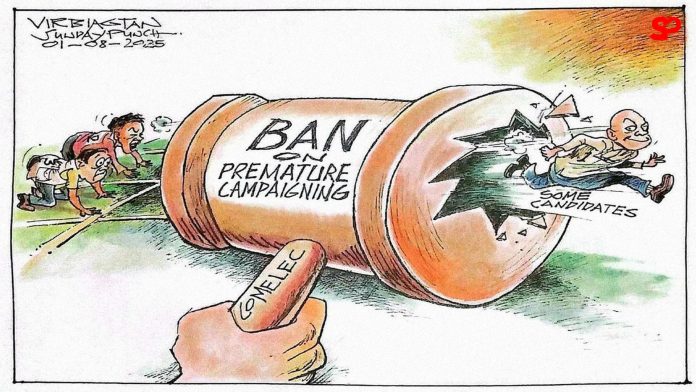Illustration by: Virgilio Biagtan
The claim that there is “no premature campaigning” in the Philippines, as perpetuated by loopholes in election laws, is a glaring example of how political systems are designed to benefit those in power. The practice, often justified by technicalities in the Omnibus Election Code and decisions by the Supreme Court, has allowed aspiring candidates to flood communities with tarpaulins, ads, and events under the guise of “advocacies” long before the official campaign period begins. This charade not only undermines the fairness of elections but also highlights the glaring disparity in political opportunities between the wealthy and the marginalized.
The Philippine Commission on Elections (COMELEC) remains powerless to regulate these activities, as the current legal framework considers an individual a candidate only during the official campaign period. This loophole allows political hopefuls to spend millions on promotional activities without accountability. The result is a distorted playing field where the rich can dominate public consciousness through sheer visibility, drowning out the voices of those who lack the resources to compete. This entrenches inequality in Philippine politics, perpetuating a cycle where money and connections dictate electoral success rather than genuine public service.
If the Philippines is serious about fostering a democratic and equitable political system, the laws governing premature campaigning must be reformed. COMELEC should be empowered to regulate all political activities from the moment an individual declares their intention to run for office.
Without these reforms, voters will continue to be bombarded with early, unregulated propaganda that erodes the essence of fair competition. The Filipino electorate deserves a system that prioritizes transparency, accountability, and genuine public service—not one where the loudest and wealthiest voices drown out meaningful discourse.

